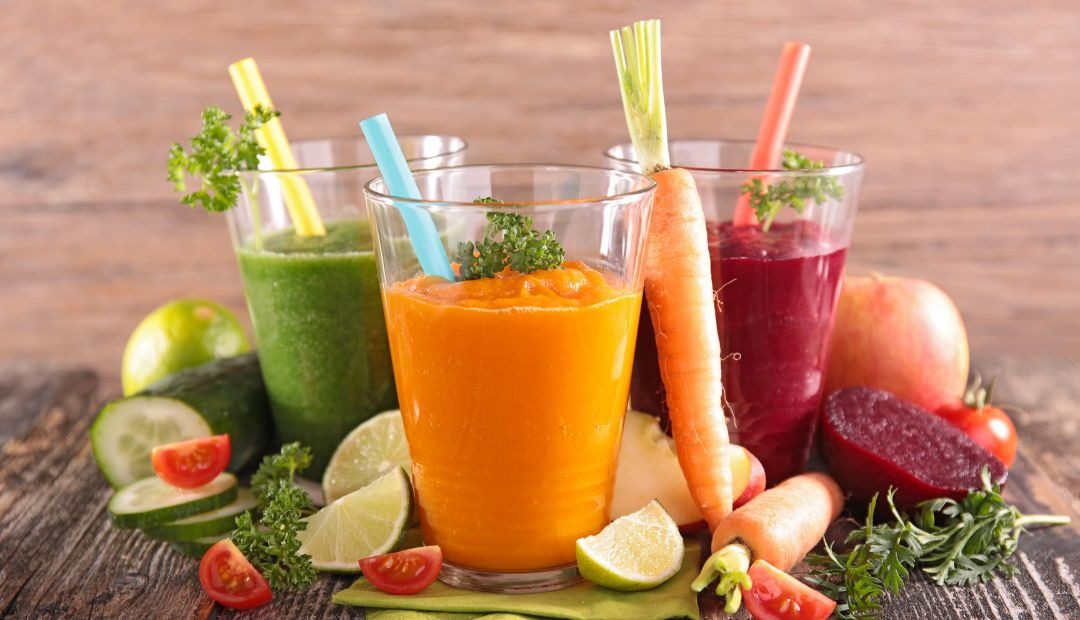Green vegetables are nature's gift to us, brimming with vibrant hues and a plethora of health benefits. When it comes to juicing, these leafy wonders can take your nutrient intake to a whole new level. From kale to spinach, broccoli to celery, the world of green vegetables offers a treasure trove of juicing possibilities.
In this blog, we'll delve into the vegetable powerhouses that should find a place in your juicing routine, helping you unlock a host of benefits for your body and mind.
Leafy Greens:
Kale, Spinach, and Swiss Chard Leafy greens are an excellent starting point for vegetable juicing. They are packed with vitamins A, C, and K, as well as folate, iron, and fiber. Kale, spinach, and Swiss chard are particularly noteworthy for their nutritional density. Kale boasts high levels of antioxidants, supports detoxification, and contributes to cardiovascular health. Spinach is rich in iron and helps strengthen bones, while Swiss chard provides a range of minerals and supports healthy digestion. Incorporating these leafy greens into your juices will provide a potent dose of essential nutrients.
Cucumber:
Hydration and Skin Health Cucumbers are not only refreshing but also a fantastic addition to your juicing repertoire. They are composed mostly of water, making them an excellent choice for hydration. Cucumbers are also known for their skin benefits, as they contain silica, which promotes collagen production and helps maintain healthy skin. Additionally, cucumbers provide vitamins K and C and contribute a mild, pleasant flavor to your juice blends.
Carrots:
Eye Health and Antioxidant Boost Carrots are renowned for their vibrant orange color and sweet taste, making them a popular choice for juicing. Rich in beta-carotene, carrots are essential for maintaining healthy vision and supporting overall eye health. They also offer a host of antioxidants that help combat free radicals and protect against chronic diseases. Including carrots in your juice blends can add a natural sweetness and provide a significant nutritional boost.
Beetroot:
Energy and Blood Pressure Regulation Beets may not be the first vegetable that comes to mind for juicing, but they are a fantastic addition to your repertoire. They are a great source of dietary nitrates, which are converted to nitric oxide in the body. Nitric oxide helps dilate blood vessels, improving blood flow and reducing blood pressure. Beetroot also enhances exercise performance, boosts energy levels, and supports liver detoxification. Despite their earthy flavor, beets can add a unique depth of taste to your juices.
Celery:
Hydration and Digestive Health Celery is a versatile vegetable that offers numerous health benefits. It is rich in water content, making it hydrating and beneficial for maintaining fluid balance in the body. Celery also contains dietary fiber, which aids in digestion and promotes bowel regularity. Additionally, it provides antioxidants and anti-inflammatory compounds that contribute to overall well-being. With its mild, crisp flavor, celery is an excellent base for many juice recipes.
Bell Peppers:
Vitamin C and Antioxidant Support Bell peppers come in a variety of colors, each with its own nutritional profile. These vibrant vegetables are a fantastic source of vitamin C, which supports immune function and collagen production. Bell peppers also provide a range of antioxidants, such as beta-carotene and lutein, which promote eye health and protect against cellular damage. Including bell peppers in your juices adds a touch of sweetness and a vibrant pop of color.
Incorporating these vegetables into your juicing routine can help you optimize your nutrient intake and support overall health. Experiment with different combinations, add herbs or spices for additional flavor, and enjoy the benefits.
Wildwood Ridge Apartments in Atlanta, GA


